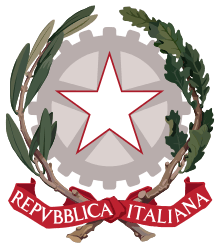Ivanoe Bonomi
| Ivanoe Bonomi | |
|---|---|
 | |
| 25th Prime Minister of Italy | |
|
In office 18 June 1944 – 19 June 1945 | |
| Monarch | Victor Emmanuel III |
| Lieutenant General | Prince Umberto |
| Preceded by | Pietro Badoglio |
| Succeeded by | Ferruccio Parri |
|
In office 4 July 1921 – 26 February 1922 | |
| Monarch | Victor Emmanuel III |
| Preceded by | Giovanni Giolitti |
| Succeeded by | Luigi Facta |
| President of the Italian Senate | |
|
In office 8 May 1948 – 20 April 1951 | |
| Preceded by | Pietro Tomasi Della Torretta |
| Succeeded by | Enrico De Nicola |
| Personal details | |
| Born |
18 October 1873 Mantua, Italy |
| Died |
20 April 1951 (aged 77) Rome, Italy |
| Nationality | Italian |
| Political party |
Italian Socialist Party (1893–1912) Italian Reformist Socialist Party (1912–1926) Labour Democratic Party (1943–1948) Socialist Party of Italian Workers (1948–1951) |
Ivanoe Bonomi [iˈvaːnoe boˈnɔːmi][1] (18 October 1873 – 20 April 1951) was an Italian politician and statesman before and after World War II.
Bonomi was born in Mantua. He was elected to the Italian Chamber of Deputies in 1909, representing Mantua as a member of the Italian Socialist Party. He was among those expelled from the party in 1912, for his advocacy of reformism and moderation, as well as his support for the Italian invasion of Libya. Bonomi joined the Italian Reformist Socialist Party, and supported Italy's participation in World War I on the side of the Triple Entente.
Bonomi served as Minister of Public Works from 1916 until 1917, and as Minister of War from 1920 until 1921 - helping to negotiate a treaty with Yugoslavia (the Treaty of Rapallo). Later in 1921 he became Treasury Minister. A few months later, he became Prime Minister of Italy for the first time, in a coalition government—the first socialist to hold the post. Early in 1922, his government collapsed, and he was replaced as Prime Minister by Luigi Facta, amidst the Fascist insurgency led by Benito Mussolini. In October 1922, Mussolini gained power through the March on Rome, and Bonomi withdrew from politics.
In 1940, Bonomi joined an anti-Fascist movement. By 1943, when Mussolini was deposed, Bonomi had become a leader of the group, and was appointed Prime Minister of the new Italian government, in 1944, when Rome was taken by the Allies. He led Italy as the country was being gained from the Fascist Italian Social Republic and the Nazi German occupiers, and helped the country's transition to democracy.
Numerous reforms in social security were made during Bonomi's time as prime minister. A law of 18 January 1945 introduced survivors’ pensions within the INPS general scheme, based on previous contributions and insurance years, while a law of 1 March 1945 established a Social Insurance Supplementation Fund within INPS in order to pay supplements to lower pensions.[2]
Bonomi came near to resignation in November 1944 over war strategy, but stayed on as Prime Minister at the urging of the British government of Winston Churchill. He remained Prime Minister until 1945, by which time World War II in Europe had ended, and stayed active in the Italian government after that moment, serving on the Constituent Assembly's committee on treaties, and also representing Italy in councils of foreign ministers until 1946. In 1948, he became President of the Italian Senate, and served in that position until his death.
After having been a founding member of the Labour Democratic Party in 1943, he later joined in 1947 the Italian Democratic Socialist Party, of which he was honorary chairman until his death.
He died in Rome.
Notes
- ↑ Correct Italian pronunciations of the name Ivanoe are available in the (Italian) Dizionario d'ortografia e di pronunzia online.
- ↑ Growth to Limits: The Western European Welfare States Since World War II Volume 4 edited by Peter Flora
| Wikimedia Commons has media related to Ivanoe Bonomi. |
.svg.png)

